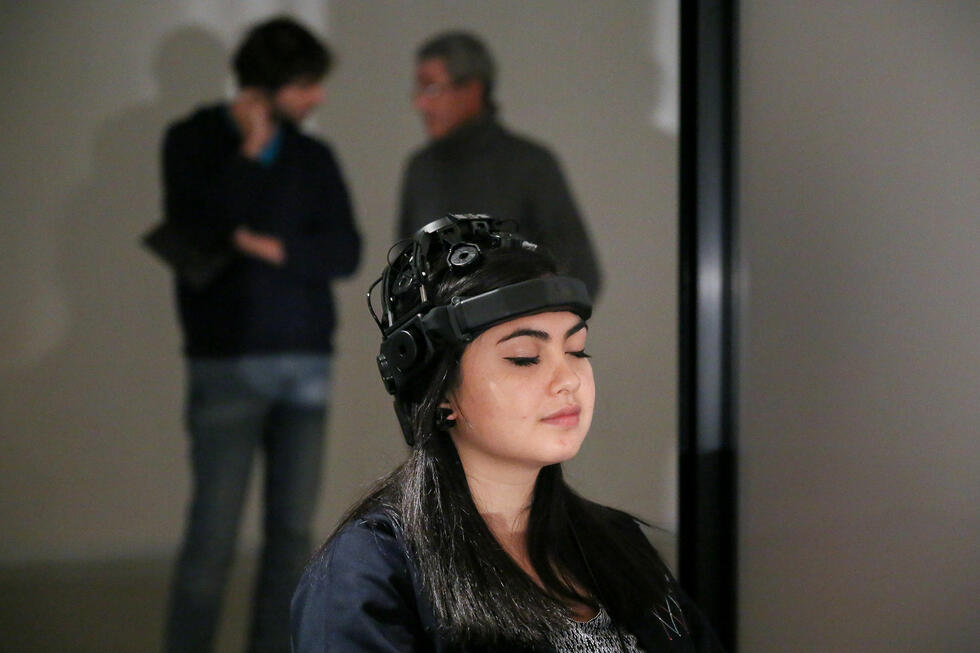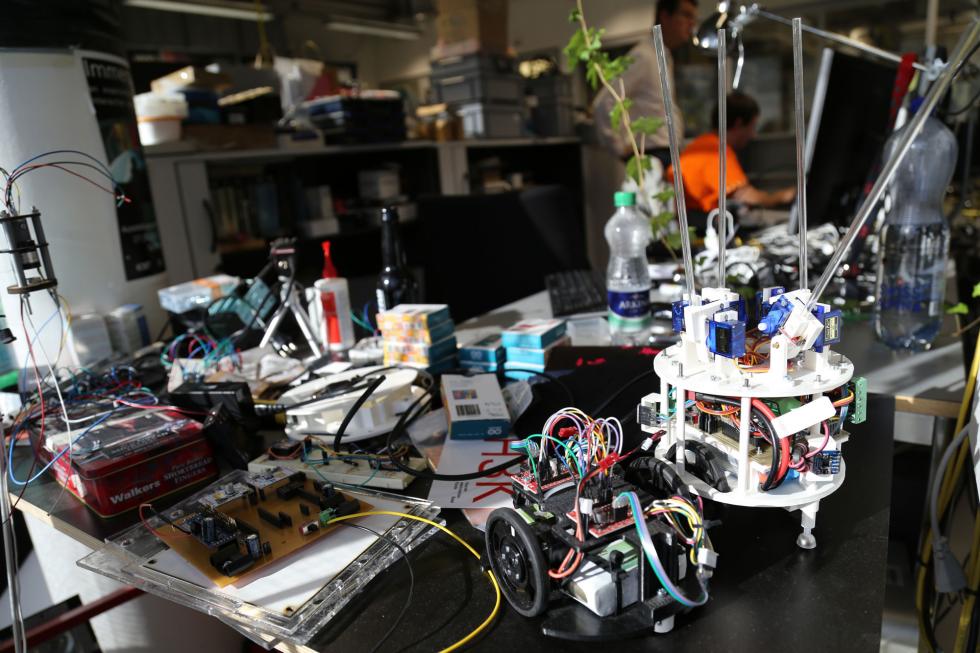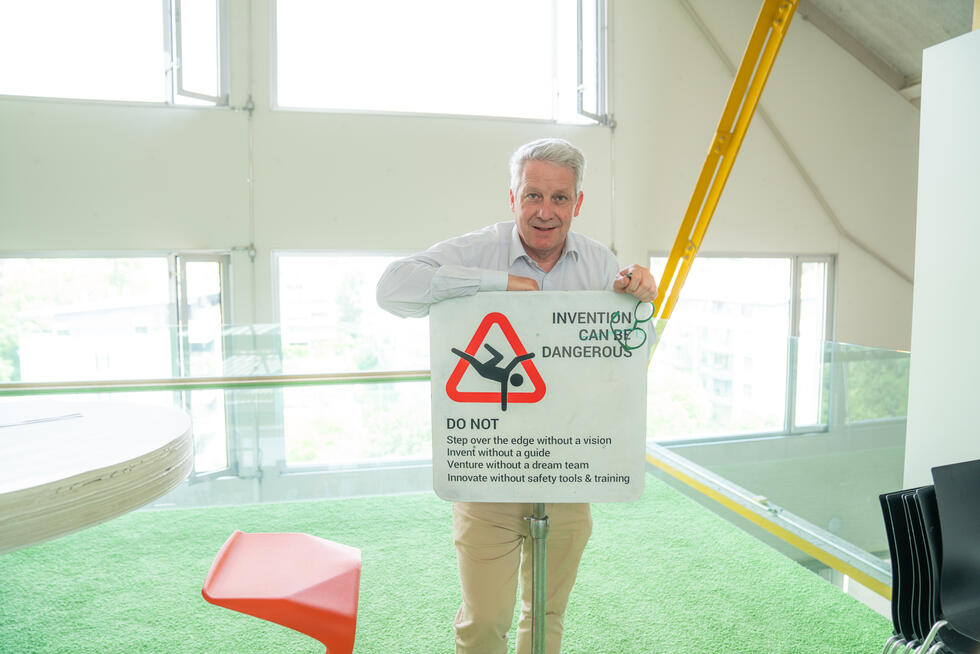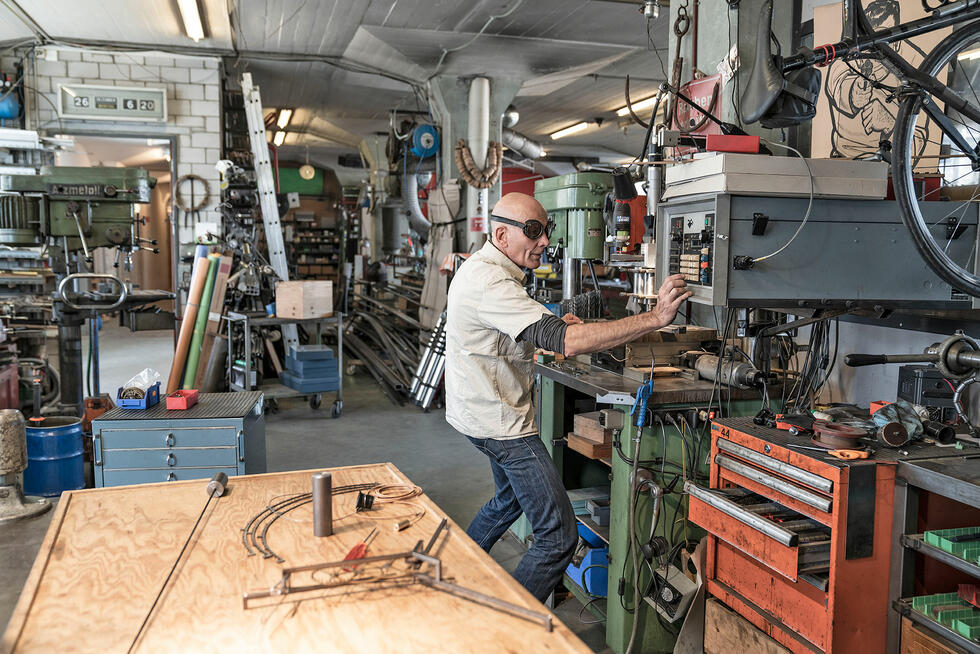A talk about time travel
Travelling to the past or future is a fascinating concept: But is time travel even feasible and would it be like it has been depicted in so many movies? Philosopher and physicist Norman Sieroka provides the answers.
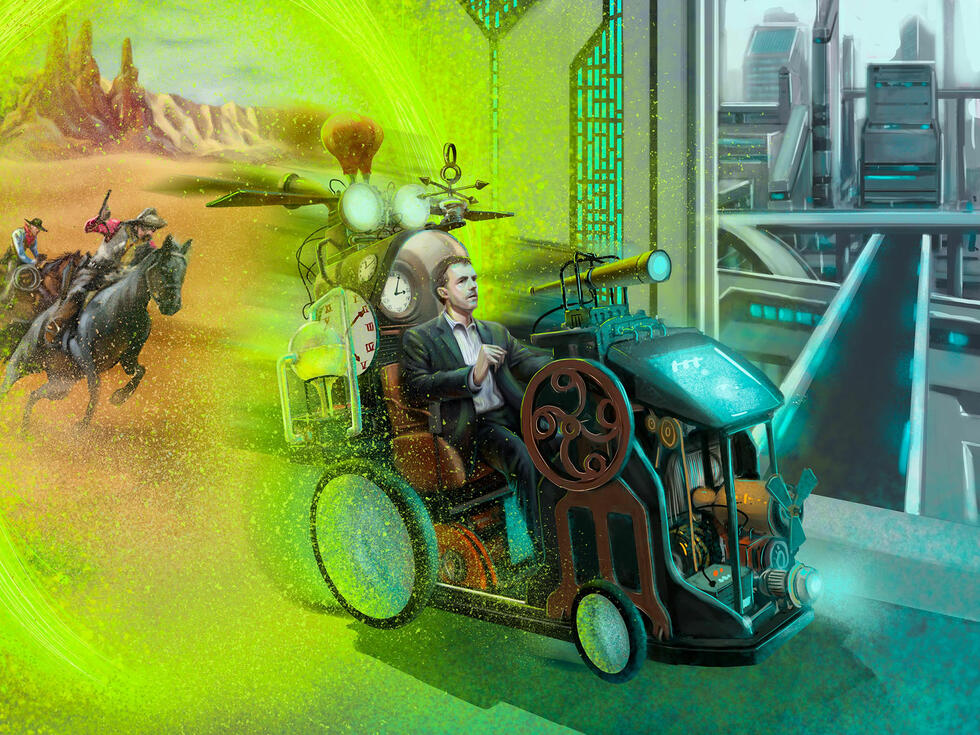
Mr. Sieroka, you spend a great deal of time thinking about time. Is time travel possible?
In theory, yes. For example, in physics, the model of the Gödel universe contains time loops. In principle, it would be conceivable for an astronaut while on a journey through space, to return to the spatiotemporal point of origin – and thus also to a point in time that had, so to speak, “already existed”. But it is highly unlikely that it will ever be possible to put this into practice. Still, time is not only a fascinating topic for physicists, but also for philosophers.
Why?
Many philosophical questions revolve around time. For example, we ask ourselves whether we have a responsibility towards past and future generations. When it comes to time travel, the question arises whether the past actually still exists – as is taken for granted in the plots of many movies. Another question of an ethical nature is whether criminals should only be punished after the crime has been committed or already before – a topic that the movie “Minority Report” dealt with in a very entertaining way.
Still, time is not only a fascinating topic for physicists, but also for philosophers.
“Back to the Future”, “12 Monkeys”, “The Time Traveler’s Wife”, or “The Butterfly Effect”: The list of movies dealing with time travel is a long one. How realistic are they?
The movies often possess a true physical core – but there are usually gaps. Consequently, time travel as it is portrayed in the movies might not work. But it is interesting to note that the genre is constantly evolving, because the audience is already familiar with the subject matter. The implementations are becoming increasingly colorful, as the example of the superhero movie “Doctor Strange” illustrates. But almost all movies are based on a specific fallacy: It is impossible to change the past, even by means of time travel.
The future, from which the time traveler comes, would thus never exist – and consequently the traveler could not go back in time to change the past.
Why not?
Because it would be illogical: The past has already happened. And in addition: A change in the past would also change the further course of time. The future, from which the time traveler comes, would thus never exist – and consequently the traveler could not go back in time to change the past. In order to salvage the logic, one would have to assume, for example, that there are several versions of the past: a past as we know it and a different past. Alternatively one could argue that the part of the past that was altered by a time traveler has always been that way.
Would you travel through time if you could?
Perhaps – although hopefully I would resist the temptation to take a peek at the winning lottery numbers in the future. I would probably travel to ancient Greece: to the origins of our western philosophy and science.

About Norman Sieroka
Norman Sieroka studied philosophy, physics, and mathematics in Heidelberg and Cambridge. He is Professor of Philosophy at the University of Bremen, Germany, and lectures at the Swiss Federal Institute of Technology (ETH) in Zurich. His book “Philosophy of Time ‒ Principles and Perspectives” (Philosophie der Zeit – Grundlagen und Perspektiven) was published in 2018 as a part of the “C.H.Beck-Wissen” series.
Written by:
Illustration: Ryan Sanchez



